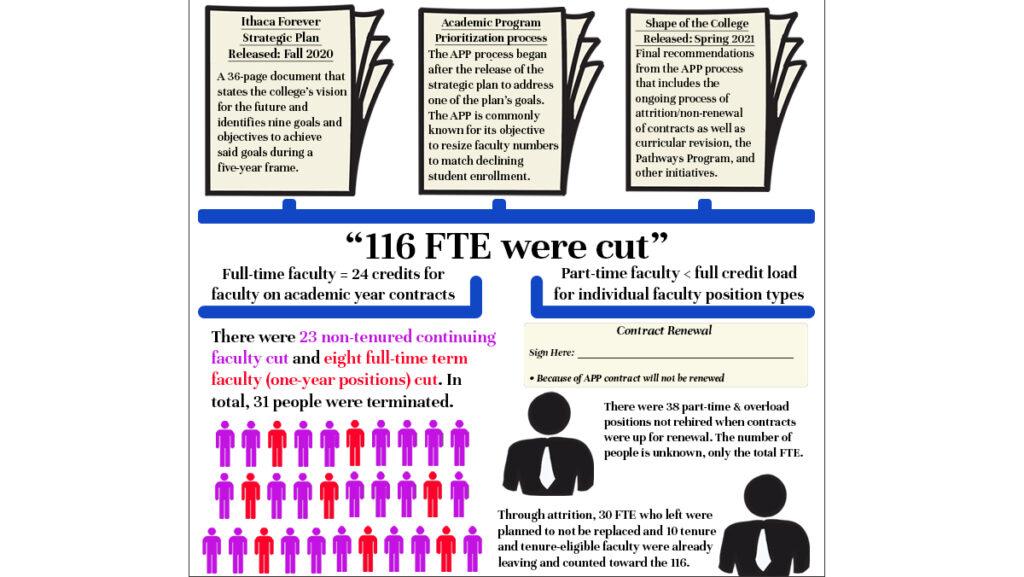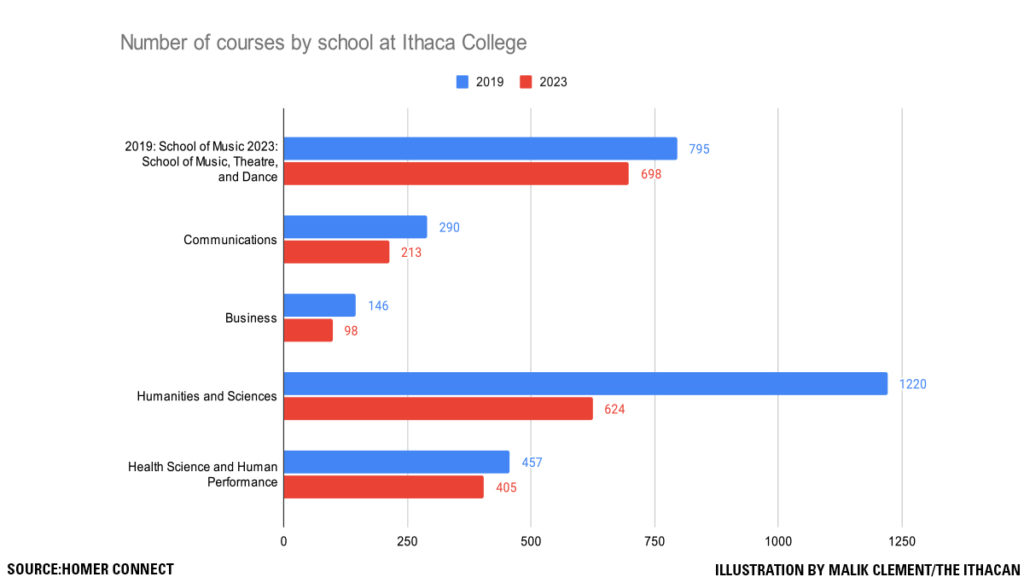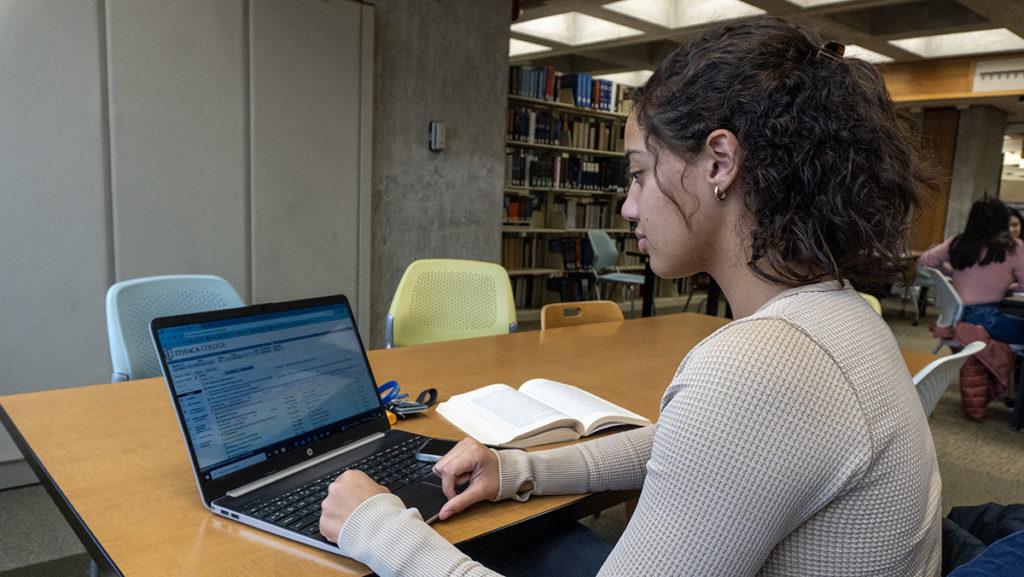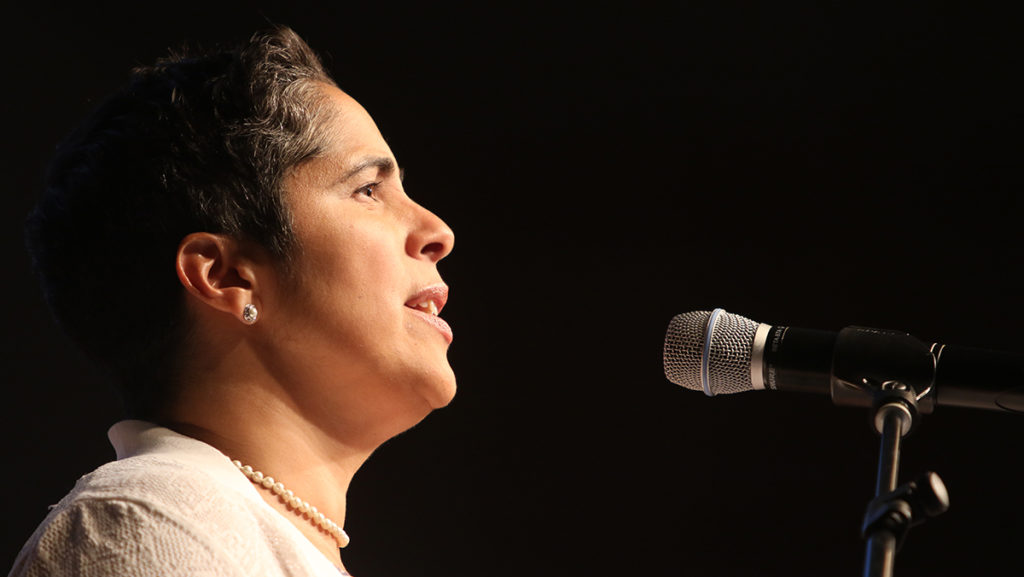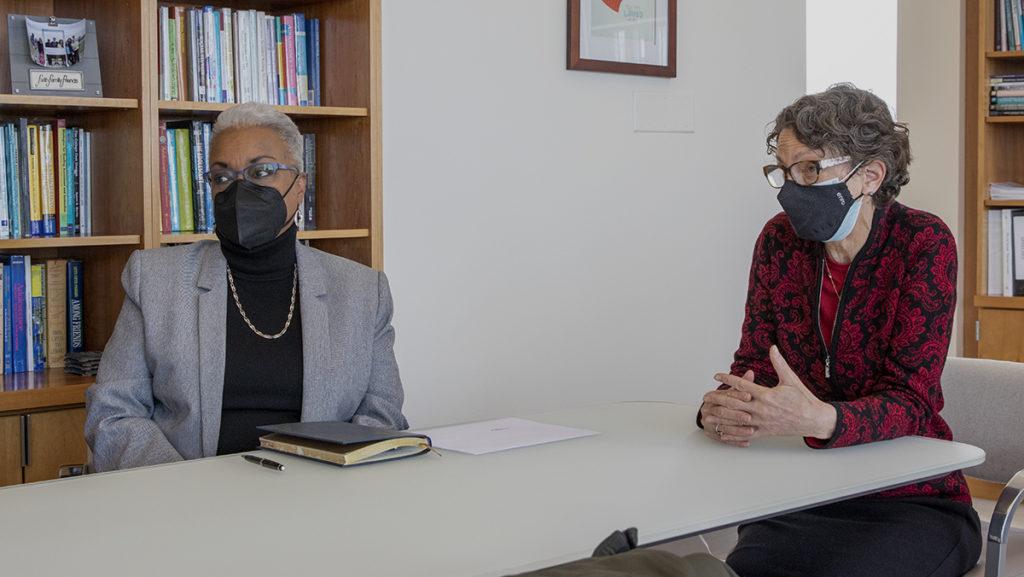A coalition of Ithaca College faculty, staff, students, alumni and community members have written a letter — dubbed #OpenTheBooks — criticizing the Academic Program Prioritization (APP) process and asking the college to make its financial information public.
At the Faculty Council meeting Oct. 6, La Jerne Cornish, provost and senior vice president for academic affairs, announced that the college will be cutting approximately 130 full-time equivalent faculty positions. This is in line with the college’s strategic plan, Ithaca Forever, and its goal to find a sustainable size for the college. However, Cornish said that the COVID-19 pandemic has accelerated the need to eliminate positions. Members of the college community have expressed their concerns with the timeline of the process and a lack of transparency from the administration regarding program and faculty cuts.
As of Nov. 5, the letter has over 330 signatures. The letter calls for shared governance, increased transparency and the college to allow the community to see its financial information that is not available publicly. The letter also asks for the college to provide examples of institutions that have successfully implemented APP processes.
Rachel Fomalhaut, lecturer in the Department of Writing and chair of the Ithaca College Contingent Faculty Union, said she hopes the letter emphasizes how many people in the college community are opposed to the impending faculty cuts and logistics of the APP process.
“What we mean by ‘open the books’ is to insist on full financial transparency and just a sense of humanity and community trust that’s involved in solving really big problems,” she said. “Are we a community or are we not? The administration talks to us about wanting to engage with them, and we need them to engage with us as well.”
The letter began circulating through informal channels the week of Nov. 2, but a faculty member affiliated with the letter who requested anonymity in the interest of job security said that the coalition will send it through more public venues, like department email lists and on Intercom.
“Faculty have the most to lose by being visible, although I don’t think the administration would fire anyone for signing onto a letter asking for a conversation,” they said. “But the fear is very real.”
In October, the Faculty Council Executive Committee (FCEC) consolidated faculty concerns and requested in a letter to the Senior Leadership Team (SLT) that the APP process be slowed down. The SLT denied the request to delay the APP process but said that Laurie Koehler, vice president for marketing and enrollment strategy, would provide a clearer rationale as to how it determined the proper size for the student body to be 5,000 and how it settled on an appropriate student-to-faculty ratio of 12-to-1 at an All-Faculty Gathering on Nov. 11. The FCEC requested that this presentation be made available to the faculty sooner.
This meeting was moved to Nov. 2. The faculty member said that although data regarding enrollment was presented at the meeting, they feel that there is still not enough transparency.
“I think a lot of faculty’s response is going to be, ‘They have opened up the books‘ and that they have been transparent with us, but there are specific demands that we would like to see in opening up those books that I’m not so sure the administration would be willing to share, and that’s some of the stuff we’re looking to get specific line-item views of,” they said.
A faculty member and principal writer of the #OpenTheBooks letter who requested anonymity in the interest of job security said that they hope the letter reframes the conversation between the administration and the campus community. They said that they feel like the administration’s statements are too broad and provide few details in terms of how being smaller is going to solve the problem of decreased enrollment.
“Often, I come out of those meetings without a clear sense of why the things they are saying are necessary are necessary,” they said. “I’m willing to imagine a world in which those things are true, that those are good goals for us, but I don’t feel they have been transparent enough to really convince me that those are the best things for the future of IC and especially that those things are the best things for us to do right now, next month, rather than a longer-term goal for it.”
Although the SLT already denied FCEC’s request to delay the APP, the principal writer of the letter said they think the #OpenTheBooks letter is important because it broadens the conversation and shows that other constituents beyond faculty members have concerns regarding the APP.
“I hope that we can keep building a coalition that includes faculty and staff and students because that’s what makes the college run,” they said. “What I want from the letter is visibility and a big, broad coalition that can say, ‘No, we really do want to have a better dialogue about this, about our goals for the college, about whether these changes are really going to get us to these goals.’”
More Calls for Transparency
The #OpenTheBooks letter criticizes a lack of transparency and questions the SLT’s reasonings for staff, faculty and program cuts.
At the Faculty Council meeting Oct. 6, Cornish initially said that these impending cuts are the result of the enrollment crisis the college is facing. However, at the All-College Gathering on Oct. 15, President Shirley M. Collado said that these cuts are not because of lower enrollment but are instead part of the strategic plan.
The letter states that members of the campus community want to be full partners in decision-making and goal setting for the college. Although members of the campus community were aware of the goal to find a sustainable size for the college, the letter claims that they were never actually asked for input about the goal itself. The letter also states that faculty members were similarly aware of the APP process and gave input on which departments and programs should be chosen for consolidation, growth, reorganization or elimination. However, faculty members were never allowed to give input on whether cutting faculty positions is a good decision for the college, the letter states.
“The problem is that things have changed dramatically, and doubling down on a plan that was put into place years ago as if nothing has happened, a plan that was meticulously crafted to run over a five–year period, and then saying, ‘You know what? We’ll do it in one or two,’ I don’t even understand how that’s possible,” the faculty member said. “It’s not the same strategy. It feels like a panicked move.”
Senior Connor Shea, president of the Student Governance Council, said the SLT’s reasoning for the cuts is confusing.
“We need to take the time to clarify the mixed messaging that is being received,” he said via email. “We owe it to our campus community to always be transparent and provide a single narrative around these decisions.”
The letter also states that enrollment information shared in graphs by Bill Guererro, vice president for finance and administration, is misleading. From 2008 to 2018, there was a net increase in enrollment, the letter states. Enrollment grew from 6,448 students in 2008 to 6,517 in 2018, according to the Office of Analytics and Institutional Research. The highest enrollment during those years was 6,949 in 2010.
“Clearly, we need to think about what happened in 2019; we know what happened in 2020 (COVID campus, anyone?),” the letter states. “And we need to think carefully about our future.”
The letter asks for specific details beyond these presentations and the college’s Form 990s, which are publicly available financial documents. The most recent Form 990 from the college documents the 2018–19 fiscal year.
The college has refused to disclose the current salaries of members of the SLT to The Ithacan. The college also will not allow The Ithacan to cover its InFinity Presentations, which are financial presentations run by Guererro. Before the college transitioned to remote learning, the meetings were public. Currently, only faculty and staff are allowed to attend.
“I don’t think that anyone should trust their authority figures to make enormous changes, especially to take austerity measures against the community, to lay off tons of faculty, to lay off tons of staff, without community involvement in those decisions,” Fomalhaut said. “Especially in this moment in the United States, I think we can see that it’s very dangerous. It‘s extremely dangerous when any authority figure — and I include myself in that, as a teacher and as chair of the union — when any authority figure says, ‘Just trust me.'”
Junior Julia Machlin, one of the students who signed the letter, said she agrees that the college should make its financial information publicly available.
“I think it’s literally the least they can do,” she said. “They absolutely should have to open their books if they’re making such a big choice that’s going to have such a big impact.”
The letter asks the SLT to discuss what the college will lose as a result of the APP process and “value its people over its budgetary bottom line.” The letter raises concerns regarding faculty of color — many of whom are lower-ranking faculty with less job security — who are most at risk of losing their jobs.
“The solution to me, first of all, involves the upper administration really acknowledging how much they have already lost in terms of the staff they cut and in terms of the contingent faculty they have already cut over the last year or so, the kinds of expertise and institutional knowledge and mentoring expertise and student retention work, what they’ve already lost in the cuts they’ve already made,” the principal writer of the letter said.
Machlin said she thinks the college should not be cutting its faculty and staff members and leaving them without money or support during the middle of a pandemic.
“It’s extremely clear where the administration lies and what they think is important,” she said. “It’s not their faculty. It’s their finances.”
The faculty member said that they hope the administration reconsiders the strategic plan after seeing how many members of the campus community showed their support for the letter.
“It has an impact on what happens in the classroom, too, when we’re in fear, when we’re competing with each other for resources, having to defend ourselves constantly, having to show the higher-ups what we’re worth. It’s hard to come into the classroom every day with the same energy and passion that we would like to,” they said.



